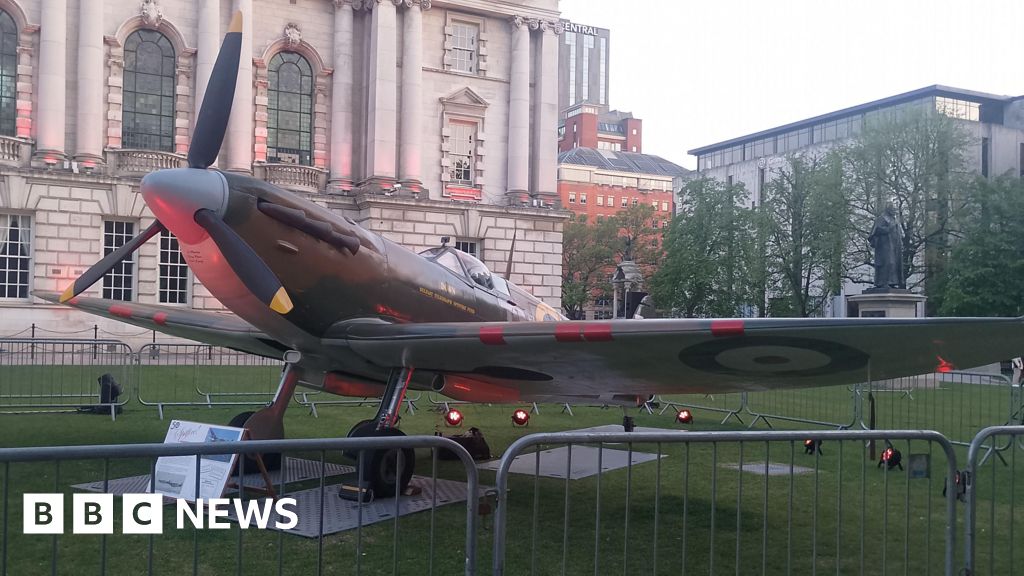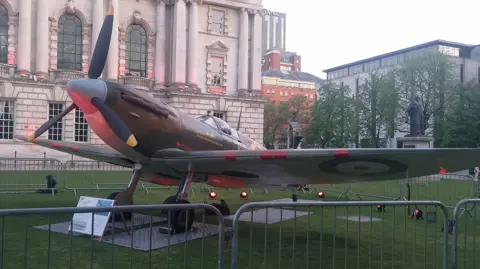 BBC
BBCNorthern Ireland will mark the 80th anniversary of VE Day with a series of events to commemorate the end of fighting in Europe in World War Two.
A number of activities, including historical talks, parades and services, are being held across Northern Ireland.
Thursday will have particular significance for Jill Weggery who is visiting Northern Ireland for the first time in the hope of learning more about her mother.
Jill’s mother, Castledine Howard from west Yorkshire, joined the Wrens (Women’s Royal Navy Service) with her sister – Pearl – four years into the war, when she turned 18.
She was posted to HMS Belfast until the war ended in 1945, and was based in barracks nearby.
“I would love to find somewhere just to stand in quiet and think about mum, but also to think about the happy times, knowing that there’d been victory in Europe and that war would be coming to an end,” she said.
“On VE Day I know she was out with the Americans celebrating with her sister and everybody, and having just a great time.”
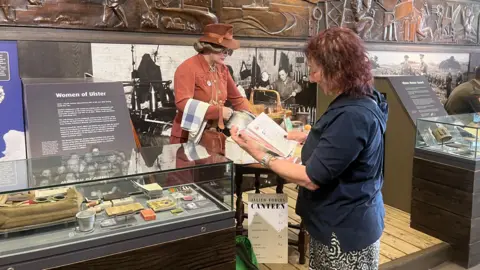
Jill, who has lived in New Zealand for more than 20 years, believes VE Day is an important reminder of the devastation of war.
“If people don’t remember what happened I think it diminishes what they had to do.
“It’s really good now that people are celebrating the strength of the people who went through it,” she said.
What’s happening across Northern Ireland?
Belfast will mark the anniversary with a series of events at City Hall, including guided walking tours, as well as a tea dance hosted by Hugo Duncan. There are events at PRONI and church services.
City Hall was lit up red on Wednesday night, and will be again on Thursday.
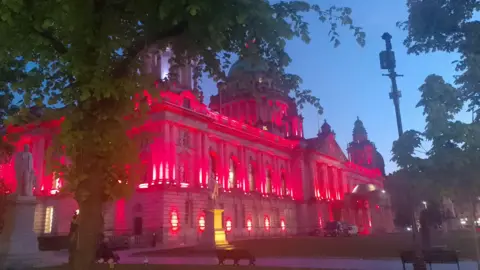
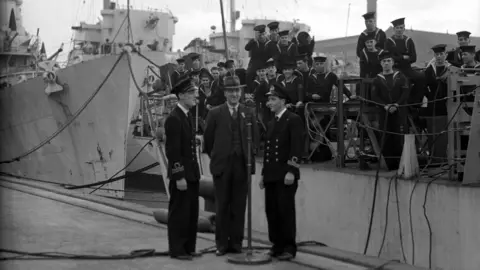
Replica spitfire on show
On Wednesday night, a special event was held at Belfast City Hall to commemorate VE Day, chaired by comedian Tim McGarry and historian, Dr David Hume.
A replica Supermarine Spitfire, used extensively by the Allied Forces during World War Two, was also on display.
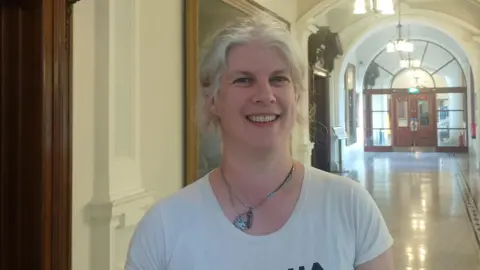
Nina Smyth, who attended the event, said: “My mum would tell me stories that my grandparents told her about the war. I think it’s important to carry the memories forward.”
Philip Hall attended the event with his nine-year-old son Keagan.
“I’ve an interest in history and I think unfortunately the younger generation aren’t aware of history in general. I want my son to learn about history, and the importance of VE Day.”
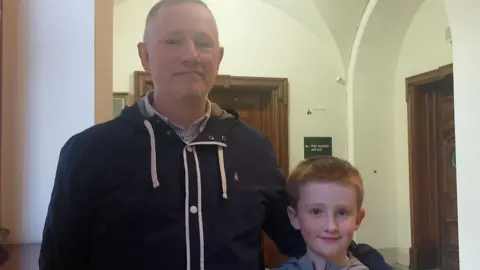
James Bunting, husband of councillor Sara Bunting, said: “It’s good to remember our past. If you forget your past then there’s a chance it’ll happen again.”
He said the men who served in the war “gave their todays for our tomorrows”.

Civic service in Londonderry
Meanwhile, a civic service marking the 80th anniversary of VE Day took place at Saint Columb’s Cathedral in Londonderry on Wednesday evening.
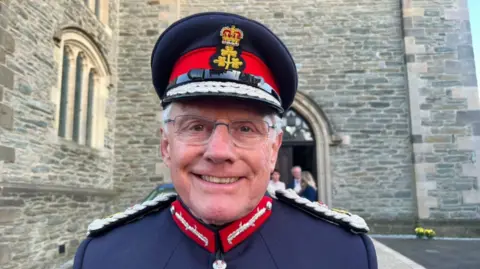
The Lord Lieutenant for the County Borough of Londonderry, Ian Crowe, said it was a very special service to be a part of and said it was very important to highlight the city’s historic links to VE Day.
It was on 14 May 1945 that the first of the German U-boats made their way up the Foyle to the port of Lisahally where they were formally ordered to surrender.
“It’s pivotal that Derry was a part of that story,” Lord Lieutenant Ian Crowe said.
VE Day ‘hugely significant’ for NI
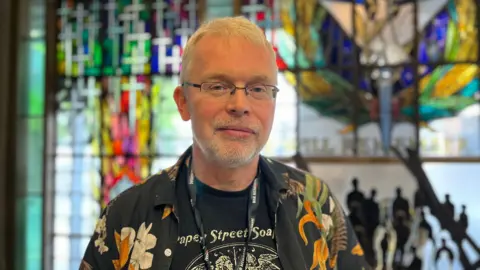
The Northern Ireland War Memorial Museum has been involved in VE Day commemorations throughout the week.
Collections officer James O’Neill said VE Day in 1945 was hugely significant for Northern Ireland.
“VE Day came after almost six years of warfare,” he told BBC News NI.
“There’s footage that shows thousands of people flooding the streets. And for many, it’s just a release of the worry that would naturally fill your mind,” he said.
“Northern Ireland had been used as a training base for thousands upon thousands of troops, it had been heavily militarised, there were airfields built, there were naval stations built, the war very much wasn’t just somewhere else, it was here and this affected everyone across the province,” he said.
What is VE Day – or Victory in Europe Day?
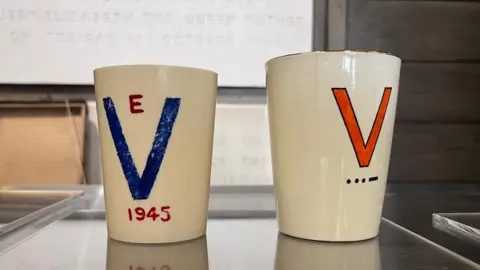
Victory in Europe (VE) Day on 8 May 1945 saw Britain and its Allies formally accept Nazi Germany’s unconditional surrender after almost six years of war.
At 15:00, Prime Minister Winston Churchill announced on the radio that the war in Europe had come to an end, following Germany’s surrender the day before.
Spontaneous celebrations broke out across the country, and the late Queen Elizabeth II – then Princess Elizabeth – and her sister Princess Margaret ventured out with a group of friends to experience the excitement in London.
Further celebrations will take place in August to mark the 80th anniversary of Victory over Japan Day (VJ Day), which marked the end of World War Two.

- To read more about what’s happening across the BBC, click here.
